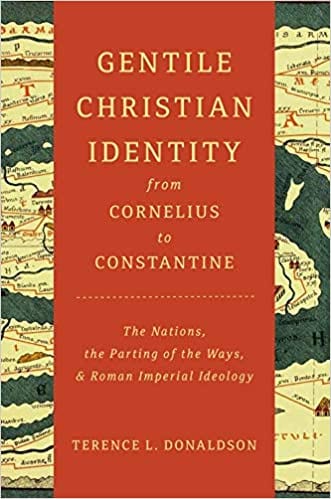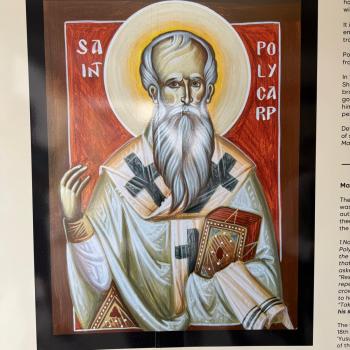Q. The term ethne, sometimes translated nations, sometimes translated Gentiles, has caused a good deal of confusion in various ways about the Greco-Roman world. Strictly speaking, there were no nation states in the modern sense of the term (as you note on p. 250). There were kingdoms, empires, tribes and various ethnic groups, and of course the English word ‘ethnic’ comes from this Greek collective noun ethne. In your discussion on p. 204 one begins to get the sense that sometimes the term ethne simply refers to an ethnic or national group or groups (since it is plural), but sometimes it has a rather religious sense— pagans or heathens, those who do not believe in the God of the Bible, and so neither proselytes to Judaism nor followers of Christ. Yet at the same time, you note that Paul can address the Gentile Christ followers in Rome as ethne. This is confusing. Is Paul simply using the term in an ethnic sense meaning non-Jews? Help us to understand better what is meant by speaking of ‘the nations’ in numerous NT texts. Do you find that a helpful translation or would ‘ethnic group’ be a better rendering? In some ways, the term ‘nation’ seems as anachronistic as the term ‘race’ when analyzing the ancient world since the term ‘race’ in our world, usually implies something about skin pigment.
A.Translation is often a tricky business. Krister Stendahl has said that our understanding of things is often more obstructed by what we think we know than by what we actually don’t know, and this is certainly true of the term ethnē—both the various ways in which it is used in our sources and the ways in which it has been translated. In your question, I think you touch on three areas of complexity, with resultant aspects of confusion.
The first has to do with the word ethnos itself, most commonly rendered in English as “nation.” To be sure, in the Greco-Roman world there was a fairly widespread, common understanding of what constituted an ethnos (gens or natio in Latin), an understanding going back as far as Herodotus (5th c. BCE)—that is, an identifiable people group characterized by common kinship, language, land, religious practices, and way of life. But there is a considerable difference between such groups (which in some cases we might also describe as tribes or clans) and modern nation states—marked by sharply defined territorial borders, recognized citizenship, centralized government, state bureaucracy, and the like. Despite this difference, though, I have found it convenient to retain the term “nation,” primarily because it is commonly used to render ethnos and related terms in the range of ancient sources under discussion (biblical, other Jewish, other Christian, Greco-Roman).
The second area of complexity and confusion has to do with the distinctive Jewish usage of the term. One aspect of this, of course, is well-known—the use of “the nations” (goyim in Hebrew, ethnē in subsequent Greek translation) to denote the nations other than the nation or people of Israel. In addition, however, the term had come to be used not only of ethnic people groups (nations) but of individual non-Jews as well. To use a NT example cited already, when Paul says “I am speaking to you ethnē,” he is addressing himself to a group of non-Jewish individuals, not to a group of “nations.” One problem with this usage, however, is that there is no corresponding singular form of the term; ethnos, the singular of ethnē, always denotes a single nation, not a single non-Jew. Eventually in Christian usage, this lack was supplied by the Latin term gentilis (an adjective used substantively), from which of course we get our term gentile. (Other modern languages with Latin roots have developed similar terms.) The term has been so successful in solving the problem, however—that is, of rendering ethnē when it refers to a plurality of non-Jewish individuals, and at the same time of functioning as a term for individual non-Jews—that English readers fail to recognize the overtones of “nations” that hover around the term. When Paul describes himself as “apostle to the ethnē,” for example, is he thinking just of non-Jewish individuals or is the idea of non-Jewish nations also in view?













